What comes to mind when someone is described as “all-American”? They’re probably physically healthy, maybe blonde, and definitely white. This image isn’t neutral: By associating the American identity with whiteness, we allow whiteness to dictate our definition of “normal,” of “us” versus “other.” This is dangerous to people who don’t have that “all-American” look.
In our interview with Mitchell S. Jackson, the author of Survival Math: Notes on an All-American Family said: “if you don’t fit into the dominant group, you often get hyphenated: Asian-American, Hispanic-American, African-American. Those hyphenates seem a part of the great project of othering. A part of me calling them all American is challenging the idea of who is American. In ‘American blood’ I claim that the people who are subjugated, oppressed, disenfranchised — and despite those harms, maintain some sense of national pride — might be the most American.”
In conjunction with hyphenated identity, “All-American” becomes a tool to dictate the narrative. It sanitizes the realities of minority communities and fictionalizes what “American” means. Equality, liberty, independence, the American Dream—these ideas don’t exist for all people, but the term “All-American” affirms the myth that it does, that everyone is included.
But what if our idea of “all-American” was actually . . . all-American? Identity is a multitude; reading more broadly into the American experience can help us create a truer, less oppressive image of who is considered American. The following list collects a few of the infinite narratives that complicate our understanding of the “all-American” identity. They encapsulate what I hope is a wide berth of experiences, genres, and intersections—written from people who identify as American or have experienced the reality of living in the U.S.
This list is never finished, but here are 30 incredible writers who deserve more attention and a lot more care. Consider it a first step in rupturing our conceptions of the American narrative.
Brutal Imagination by Cornelius Eady
Cornelius Eady’s extraordinary collection was a finalist for the 2001 National Book Award in Poetry. The collection examines what it means to be black in white imagination. The book reckons with the falsified report of Susan Smith, after she blames the murder of her two children on a nonexistent African American man.
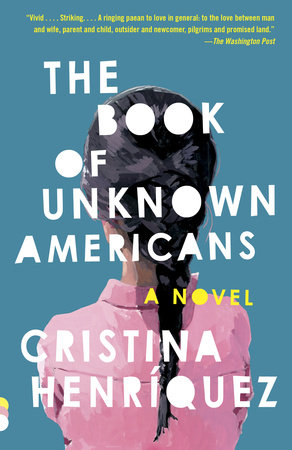
The Book of Unknown Americans by Cristina Henríquez
The novel follows the interconnected stories of the Rivera and Toro families, who struggle to find themselves in a new country. Ruth Ozeki says that Cristina Henríquez “gives us unforgettable characters . . . whose resilience yields a most profound and unexpected kind of beauty.”
The Good Immigrant, edited by Nikesh Shukla and Chimene Suleyman
This essay collection contains the reflections of 26 immigrants and the children of immigrants, from writers like Teju Cole and Jenny Zhang, about their experiences in the U.S.
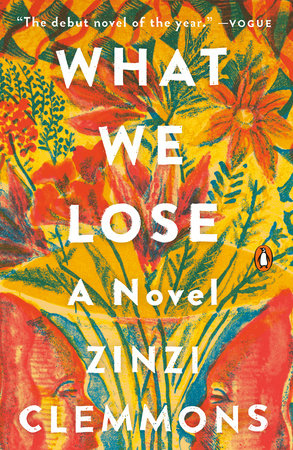
What We Lose by Zinzi Clemmons
In this coming-of-age, a young woman attempts to bridge being black, white, American and not, in the grief of seeing her mother succumb to cancer. What We Lose is a stunning portrayal of living after loss and finding oneself in the disconnect.

When I Grow Up I Want to be a List of Further Possibilities by Chen Chen
Longlisted for the National Book Award for Poetry, this debut explores the relationship between mother and son and the forms of love that emerge in the identity of being Asian American and queer.

Him, Me, Muhammad Ali by Randa Jarrar
This short story collection travels through history, reality, and fable as it presents Muslim women and men with boundless care and imagination. Laila Lalami says Jarrar’s “voice is assured, fiercely independent, laced with humor and irony—and always, always, honest.”

When I Was Puerto Rican by Esmeralda Santiago
Esmeralda Santiago recounts her journey from rural Puerto Rico to receiving high honors at Harvard, after her mother decides to move to New York with her eleven children.

Heavy by Kiese Laymon
Kiese Laymon confronts the spoken lies between him and his mother, reckoning with the complex relationships he has with his family, sexual violence, anorexia, race, and gambling. Heavy takes on the weight of where someone has been and where someone has come.

Whereas by Layli Long Soldier
This exquisite poetry collection, written in part as a response to the Congressional resolution of apology to Native Americans, examines the coercive language of the U.S. government toward indigenous communities.

America Is Not the Heart by Elaine Castillo
Elaine Castillo’s debut novel America Is Not the Heart follows three generations of women who reconcile with leaving behind the Philippines and confront what it means to live in America while the inescapable past follows.

Survival Math: Notes on an All-American Family by Mitchell S. Jackson
Survival Math is a stunning nonfiction book that delves into race, class, masculinity, near-death experiences, and how Mitchell S. Jackson and his family were made to survive in the whiteness of Portland, Oregon. Terrance Hayes says “Mitchell S. Jackson’s insights into how black men survive become insights of everyone’s survival.”

Monstress by Lysley Tenorio
Lysley Tenorio moves us through the Filipinx American community in California and the Philippines with his heartrending short story collection, exploring family, isolation, and the distorted glitz of Hollywood.

Mean by Myriam Gurba
This work of nonfiction is fearless as it tackles racism, misogyny, sexual violence, and homophobia. As stated in this coming-of-age about being a queer, mixed-race Chicana: “being mean isn’t for everybody. Being mean is best practiced by those who understand it as an art form.”

Isako Isako by Mia Ayumi Malhotra
Winner of the 2017 Alice James Award, Isako Isako is a book of poetry that follows four generations of Japanese American women and the generational trauma of surviving internment during WWII. Brynn Saito says “Isako Isako is a powerful testament to poetry’s capacity for alchemizing history, memoir, and the lyric.”

Heads of the Colored People by Nafissa Thompson-Spires
Heads of the Colored People maneuvers between sharp, poignant, and darkly humorous as the collection explores being black and middle-class in America. Kiese Laymon says “the super thin lines between terror, intimacy, humor and hubris are masterfully toed, jumped and ultimately redrawn in the most exciting and soulful fiction I’ve read this century.”
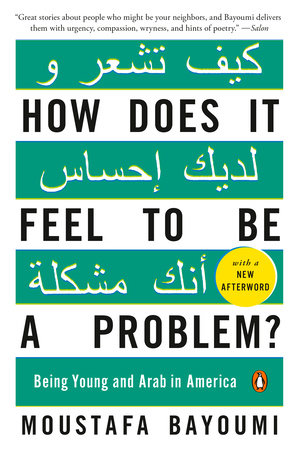
How Does It Feel to be a Problem? by Moustafa Bayoumi
Moustafa Bayoumi asks the same question W.E.B. Du Bois asked in The Souls of Black Folk: how does it feel to be a problem? In this book, Bayoumi delves into the profile of a community through the lives of seven young Arab Americans living in Brooklyn.

The Fire This Time edited by Jesmyn Ward
Written in conversation with James Baldwin’s The Fire Next Time, this collection of essays and poems brings together 18 brilliant writers of this generation, such as Jericho Brown, Kevin Young, and Claudia Rankine, to reflect on race in America–past, present, and future.
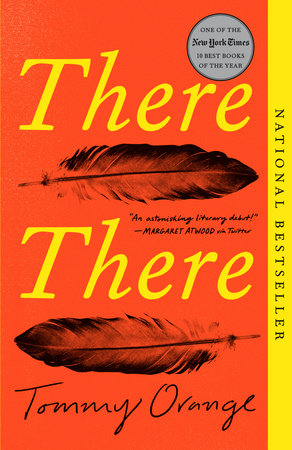
There, There by Tommy Orange
There, There presents a portrait of urban Native Americans through the lives of 12 people attending the Big Oakland Powwow. Marlon James says the novel “drops on us like a thunderclap; the big, booming, explosive sound of twenty-first century literature finally announcing itself.”

Friday Black by Nana Kwame Adjei-Brenyah
Friday Black is a dark short story collection that reckons with racism, oppression, and capitalism in America. Tommy Orange says this book is an “unbelievable debut, one that announces a new and necessary American voice.”
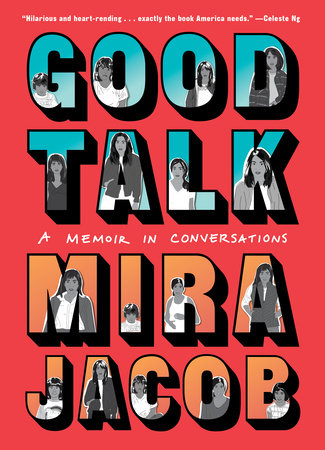
Good Talk by Mira Jacob
In this graphic memoir, Mira Jacob recreates past conversations about race, color, sexuality, and love as she attempts to answer her young mixed-race son’s life questions. Kiese Laymon says “Mira Jacob just made me toss everything I thought was possible in a book-as-art-object into the garbage.”

American Sonnets for My Past and Future Assassin by Terrance Hayes
Written in the first 200 days of Trump’s presidency, this poetry collection features 70 poems haunted by America’s past and future. Terrance Hayes explores what it means to be American in the sonnet form.
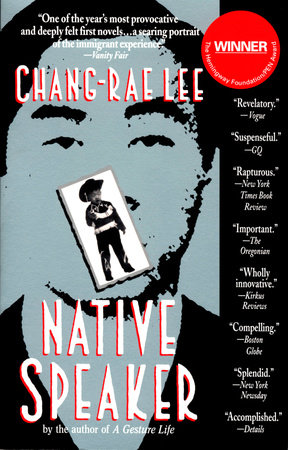
Native Speaker by Chang-rae Lee
Native Speaker follows a Korean man, Henry Park, as he tries to become a “true American” while fixing a straining marriage and spying on an up and coming politician.

Olio by Tyehimba Jess
Winner of the 2017 Pulitzer Prize in poetry, Olio delves into the lives of African American performers from the Civil War to WWI by weaving sonnet and story together.

If You See Me, Don’t Say Hi by Neel Patel
A midwestern Indian Americana, If You See Me, Don’t Say Hi contains 11 short stories that subvert the stereotypes of Indian Americans.

Don’t Call Us Dead by Danez Smith
Don’t Call Us Dead imagines an afterlife for the black men shot by police in the U.S. This poetry collection is an evocative commentary about life in America as someone who is queer and black and living in danger.

Dear America: Notes of an Undocumented Citizen by Jose Antonio Vargas
Jose Antonio Vargas is a Pulitzer prize winner, journalist, and undocumented American. He says that his memoir is about “homelessness, not in a traditional sense, but in the unsettled, unmoored psychological state that undocumented immigrants like myself find ourselves in.”

Nepantla: An Anthology Dedicated to Queer Poets of Color edited by Christopher Soto
Nepantla is an anthology formed with the help of the Lambda Literary Foundation to celebrate and preserve the experiences of queer poets of color in America. The book showcases writers like Audre Lorde, Jericho Brown, Ocean Vuong, and Tommy Pico.
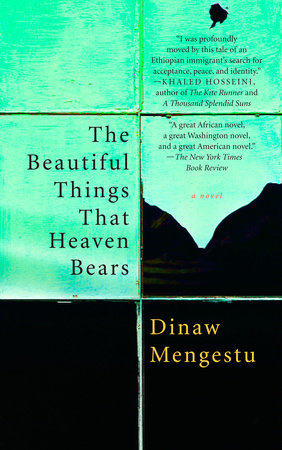
The Beautiful Things That Heaven Bears by Dinaw Mengestu
The Beautiful Things That Heaven Bears follows the journey of Sepha Stephanos as he flees the Ethiopian Revolution and ends up in Washington, D.C., running a struggling convenience store.
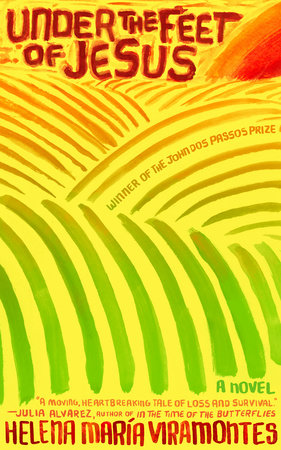
Under the Feet of Jesus by Helena María Viramontes
This novel follows a girl and her family as they withstand a second-class existence as migrant workers along the California landscape. Julia Alvarez says Under the Feet of Jesus is “a moving, heartbreaking tale of loss and survival.”

Everyday People: The Color of Life edited by Jennifer Baker
Everyday People: The Color of Life anthologizes short fiction from established and emerging writers of color, such as Yiyun Li, Alexander Chee, and Brandon Taylor.
The post 30 Books By Writers Of Color Redefining the Term “All-American” appeared first on Electric Literature.
Source : 30 Books By Writers Of Color Redefining the Term “All-American”













